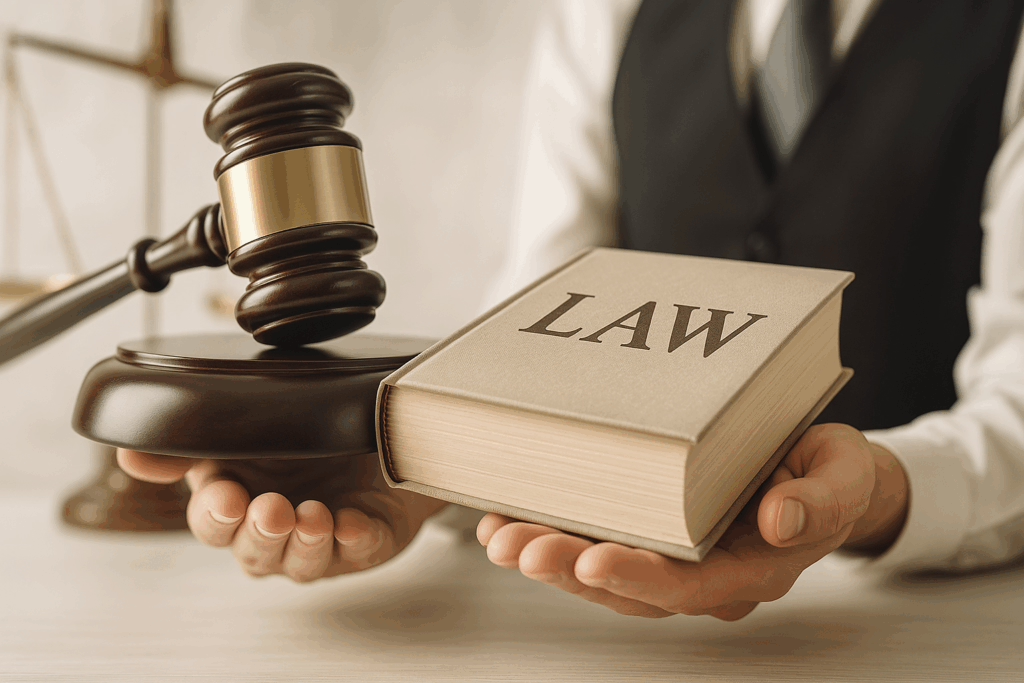Defending Against Bad Faith Criminal Prosecution in Thailand

Legal Protection Under Section 161/1 of the Criminal Procedure Code | Lead Law Firm in Bangkok
Defending against bad faith criminal prosecution is essential when legal processes are weaponized for personal or political purposes. Thailand’s Criminal Procedure Code offers a specific safeguard—Section 161/1—designed to prevent dishonest or abusive prosecutions. This provision empowers courts to dismiss cases that are filed with improper motives, without requiring a full trial.
As a lead law firm in Bangkok, we regularly assist clients in invoking legal protection under Section 161/1 of the Criminal Procedure Code, especially in complex, high-stakes cases.
Table of Contents
1. What Is Section 161/1 and Why It Matters
Section 161/1 of the Thai Criminal Procedure Code empowers the court to dismiss a criminal complaint filed by a private individual if it appears to have been submitted without good faith.
🔗 Related: Thailand Criminal Procedure Code – English Translation
The provision plays a crucial role in defending against bad faith charges, ensuring that criminal litigation is not used as a tool for harassment, intimidation, or strategic gain.
2. Defining “Bad Faith” in Criminal Prosecution
A bad faith prosecution typically involves using the justice system to:
-
Intimidate or retaliate against someone
-
Obstruct lawful activity (e.g., journalism, whistleblowing)
-
Gain leverage in civil or business disputes
-
Burden a defendant through multiple, unnecessary cases
This aligns with global definitions of SLAPP (Strategic Lawsuits Against Public Participation), commonly discussed in free speech and human rights contexts. See: SLAPPs Explained – CIVICUS Monitor
3. Real-World Examples of Abusive Filings
⚖️ Example 1: Harassment by Multiplicity
A former business partner filed 30 criminal cases in 10 provinces over a single contractual dispute. The court recognized the abuse and dismissed the filings under Section 161/1.
⚖️ Example 2: Silencing a Whistleblower
A municipal officer faced criminal defamation after reporting corruption. The court found that the lawsuit was not intended to pursue justice but to deter reporting.
4. How Thai Courts Assess Bad Faith
Courts consider:
-
The wording and substance of the complaint
-
Timing relative to other events (e.g., whistleblowing, elections)
-
The plaintiff’s conduct, including patterns of similar lawsuits
-
Documentary and witness evidence suggesting an ulterior motive
📘 Read: Thai Court of Justice – Criteria for Good Faith Litigation (in Thai)
Courts have discretion to assess whether a complaint was intended to seek justice or manipulate legal proceedings.
5. Section 161/1 Compared to Other Dismissal Grounds
|
Provision |
Trigger |
Can Refile? |
Used By |
|---|---|---|---|
|
161/1 |
Bad faith by private complainant |
Public prosecutor may refile |
Defendant |
|
167 |
Absence of complainant |
Yes |
Court |
|
185 |
Legal insufficiency |
No |
Court |
Legal protection under Section 161/1 of the Criminal Procedure Code is unique in that it focuses on the complainant’s intent, not the merits of the case.
6. How to Invoke Section 161/1
The defense can file a motion supported by:
-
Legal memorandum referencing 161/1
-
Proof of abusive behavior or intention
-
Relevant precedents or expert opinions
-
Records showing repeated or retaliatory litigation
The motion is often filed before trial during the pre-hearing stage (ไต่สวนมูลฟ้อง).
7. What Happens After a Dismissal
If the court dismisses a case under 161/1:
-
The private complainant cannot refile the case
-
The public prosecutor still has discretion to file charges
-
The ruling serves as a precedent and discourages future abuse
-
The defendant saves legal costs and avoids criminal stigma
However, dismissal under 161/1 does not guarantee immunity if new legitimate charges arise.
8. Strategic Use by Defense Lawyers
As a lead law firm in Bangkok, we use Section 161/1 when:
-
Clients are targets of political or corporate retaliation
-
Multiple cases are filed to harass or exhaust resources
-
Opposing parties use criminal law to bypass civil processes
A strategically framed 161/1 motion often results in early dismissal—preserving our client’s freedom and reputation.
9. Scholarly Insight and Policy Trends
Thai academics and policy analysts have increasingly highlighted Section 161/1 as a tool against:
-
SLAPP suits
-
Politically motivated charges
-
Corporate retaliation
A 2023 paper from the Thammasat University Law Journal discussed the growing role of 161/1 in protecting civil society actors.
Globally, this aligns with international standards on access to justice and protection from arbitrary prosecution.
10. Summary: Defending Against Bad Faith Effectively
When someone weaponizes criminal law for strategic gain, defending against bad faith prosecution becomes not just a legal right—but a moral necessity.
Legal protection under Section 161/1 of the Criminal Procedure Code is your first line of defense. It allows courts to screen out dishonest or abusive cases at an early stage.
If you’re facing a suspicious or retaliatory complaint, consult a lead law firm in Bangkok with deep experience in criminal defense. This may be the key to stopping injustice before it starts.
📌 For further reading:
Contact Information
Siam Center Law Group
Website: https://www.siamcenterlawgroup.com
Phone: Available for consultation 5 working days a week
For support with preparing pleadings, submitting court documents, or exploring expedited dispute resolution, our attorneys are ready to assist you with professionalism and clarity.
